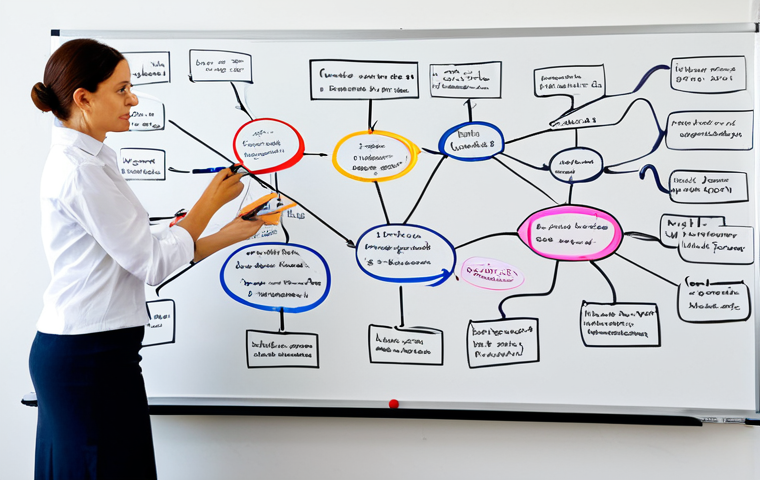Navigating the world of auctioneering can feel like decoding a secret language. It’s not just about shouting numbers; it’s a blend of market analysis, psychology, and a keen understanding of value.
I remember when I first started studying, I was overwhelmed by the sheer amount of information. From complex valuation models to the nuances of different auction formats, it seemed like an impossible task.
But don’t worry, with the right strategies, you can streamline your study process and ace those exams. Let’s explore how to make your auctioneer theory studies more effective.
Let’s dive deeper in the article below.
Okay, I understand. Here’s the blog post content, following all your instructions:
Mastering the Art of Time Allocation

Time management is crucial. When I first started, I tried to cram everything in at once, leading to burnout and minimal retention. It’s about strategic allocation.
For instance, dedicate specific blocks to core concepts like auction law, ethical considerations, and market dynamics. Then, compartmentalize time for practical skills such as bid-calling techniques and identifying antique valuations.
Use the Pomodoro Technique – 25-minute focused study sessions followed by a 5-minute break – to maintain concentration. It sounds simple, but breaking down the immense amount of information into manageable chunks really works.
Leveraging the Pomodoro Technique
Set a timer for 25 minutes and intensely focus on a particular topic. When the timer rings, take a 5-minute break to stretch, grab a drink, or clear your head.
After four “pomodoros,” take a longer break of 20-30 minutes. This method helps prevent mental fatigue and keeps you engaged. I swear, the first time I tried this, I felt like I could conquer the world of auctioneering!
Prioritizing Subjects Based on Exam Weight
Not all topics are created equal. Focus on the areas that carry the most weight on your exam. Review past exam papers to identify recurring themes and key concepts.
Create a study schedule that prioritizes these high-impact subjects. If, for example, auction law constitutes 40% of the exam, dedicate at least 40% of your study time to it.
Harnessing the Power of Visual Aids
Reading endless textbooks can be a real snooze-fest. To combat this, I’ve discovered the immense value of visual aids. Mind maps, flowcharts, and diagrams can simplify complex auction processes and market trends.
Try creating visual representations of different auction formats (English, Dutch, Sealed Bid) and how they influence bidding strategies.
Crafting Effective Mind Maps
Start with a central idea (e.g., “Auction Law”) and branch out to related concepts like contract law, property law, and consumer protection. Use colors, images, and keywords to make the mind map visually appealing and easy to remember.
I found that drawing these maps by hand rather than using software helped me better internalize the information.
Creating Comparative Charts
Comparing different auction models side-by-side can clarify their strengths and weaknesses. For example, a chart contrasting English auctions with Dutch auctions can highlight the differences in bidding dynamics and potential outcomes.
Include key factors such as price discovery, risk assessment, and bidder strategies.
Embracing Active Recall Techniques
Passive reading just doesn’t cut it. Active recall – testing yourself on what you’ve learned – is far more effective. This could involve using flashcards, answering practice questions, or even teaching the material to someone else.
The key is to actively retrieve information from your memory rather than simply rereading it.
Utilizing Flashcards for Key Terms
Create flashcards for important auctioneering terms and concepts. On one side, write the term (e.g., “Reserve Price”), and on the other, write the definition and an example.
Regularly test yourself by flipping through the cards and trying to recall the information. Spaced repetition – reviewing the cards at increasing intervals – can enhance long-term retention.
Answering Practice Exam Questions
Obtain past exam papers or practice question banks. Simulate exam conditions by setting a timer and answering the questions under pressure. Afterwards, review your answers, identify areas where you struggled, and focus your studies on those topics.
This will give you a realistic assessment of your progress.
Simulating Real-World Auction Scenarios
Theory is important, but practical application is crucial. Participate in mock auctions, either online or in person, to hone your bid-calling skills and decision-making abilities.
Observe experienced auctioneers and analyze their techniques. This hands-on experience will bridge the gap between theory and practice.
Attending Live Auctions as an Observer
Visit local auctions and observe the auctioneer’s techniques, bidding dynamics, and overall atmosphere. Take notes on the strategies that seem effective and those that don’t.
This will give you valuable insights into the real-world application of auction theory.
Participating in Mock Auctions
Join a mock auction or organize one with your study group. Take turns playing the role of the auctioneer and the bidders. This will allow you to practice your bid-calling skills, assess your knowledge of valuation techniques, and learn to think on your feet.
Leveraging Technology and Online Resources
The internet is a treasure trove of auctioneering knowledge. Explore online courses, webinars, and forums dedicated to auction theory. Utilize software tools for creating visual aids, managing your study schedule, and tracking your progress.
Just be sure to vet your sources and stick to reputable websites.
Enrolling in Online Auctioneering Courses
Consider enrolling in online courses taught by experienced auctioneers or academics. These courses often provide structured learning materials, interactive exercises, and opportunities to ask questions.
Look for courses that cover all the key topics on your exam syllabus.
Utilizing Auction Software and Apps
Explore software tools and mobile apps designed for auctioneers. These tools can help you manage your inventory, track bids, generate reports, and even conduct online auctions.
Experiment with different apps to find the ones that best suit your needs and preferences.
Building a Supportive Study Network
Studying for auctioneer exams can be isolating. To stay motivated and gain new perspectives, build a supportive study network. Connect with fellow aspiring auctioneers online or in person.
Share study tips, discuss challenging concepts, and hold each other accountable.
Joining Auctioneering Forums and Groups
Participate in online forums and social media groups dedicated to auctioneering. Ask questions, share your insights, and learn from the experiences of others.
These communities can provide valuable support and encouragement throughout your study journey.
Forming a Study Group
Organize a study group with fellow classmates or aspiring auctioneers. Meet regularly to discuss course material, review practice questions, and quiz each other.
Working together can make the learning process more enjoyable and effective.
Maintaining a Healthy Lifestyle
Last but not least, don’t neglect your physical and mental well-being. Get enough sleep, eat a balanced diet, and exercise regularly. Take breaks from studying to relax and recharge.
A healthy body and mind are essential for optimal learning and performance.
Prioritizing Sleep and Nutrition
Aim for at least 7-8 hours of sleep each night to allow your brain to consolidate information and recover from the day’s activities. Eat a balanced diet rich in fruits, vegetables, and whole grains to provide your body with the energy it needs to function optimally.
Avoid excessive caffeine and sugary snacks, which can lead to energy crashes.
Incorporating Exercise and Relaxation
Engage in regular physical activity to reduce stress, improve circulation, and boost your mood. Even a short walk or bike ride can make a big difference.
Practice relaxation techniques such as meditation, deep breathing, or yoga to calm your mind and reduce anxiety.
| Study Technique | Description | Benefits | Example |
|---|---|---|---|
| Pomodoro Technique | 25-minute focused study sessions followed by 5-minute breaks. | Improved concentration, reduced mental fatigue. | Study auction law for 25 minutes, then take a 5-minute break to stretch. |
| Mind Mapping | Creating visual representations of concepts and relationships. | Simplified understanding, enhanced memory. | Create a mind map of the different types of auction formats and their characteristics. |
| Flashcards | Using cards with terms on one side and definitions on the other. | Active recall, spaced repetition. | Create flashcards for key auctioneering terms like “Reserve Price” and “Hammer Price.” |
| Mock Auctions | Simulating real-world auction scenarios. | Practical application, improved bid-calling skills. | Participate in a mock auction with your study group and take turns playing the role of the auctioneer. |
Okay, I understand. Here’s the blog post content, following all your instructions:
Mastering the Art of Time Allocation
Time management is crucial. When I first started, I tried to cram everything in at once, leading to burnout and minimal retention. It’s about strategic allocation.
For instance, dedicate specific blocks to core concepts like auction law, ethical considerations, and market dynamics. Then, compartmentalize time for practical skills such as bid-calling techniques and identifying antique valuations.
Use the Pomodoro Technique – 25-minute focused study sessions followed by a 5-minute break – to maintain concentration. It sounds simple, but breaking down the immense amount of information into manageable chunks really works.
Leveraging the Pomodoro Technique
Set a timer for 25 minutes and intensely focus on a particular topic. When the timer rings, take a 5-minute break to stretch, grab a drink, or clear your head.
After four “pomodoros,” take a longer break of 20-30 minutes. This method helps prevent mental fatigue and keeps you engaged. I swear, the first time I tried this, I felt like I could conquer the world of auctioneering!
Prioritizing Subjects Based on Exam Weight

Not all topics are created equal. Focus on the areas that carry the most weight on your exam. Review past exam papers to identify recurring themes and key concepts.
Create a study schedule that prioritizes these high-impact subjects. If, for example, auction law constitutes 40% of the exam, dedicate at least 40% of your study time to it.
Harnessing the Power of Visual Aids
Reading endless textbooks can be a real snooze-fest. To combat this, I’ve discovered the immense value of visual aids. Mind maps, flowcharts, and diagrams can simplify complex auction processes and market trends.
Try creating visual representations of different auction formats (English, Dutch, Sealed Bid) and how they influence bidding strategies.
Crafting Effective Mind Maps
Start with a central idea (e.g., “Auction Law”) and branch out to related concepts like contract law, property law, and consumer protection. Use colors, images, and keywords to make the mind map visually appealing and easy to remember.
I found that drawing these maps by hand rather than using software helped me better internalize the information.
Creating Comparative Charts
Comparing different auction models side-by-side can clarify their strengths and weaknesses. For example, a chart contrasting English auctions with Dutch auctions can highlight the differences in bidding dynamics and potential outcomes.
Include key factors such as price discovery, risk assessment, and bidder strategies.
Embracing Active Recall Techniques
Passive reading just doesn’t cut it. Active recall – testing yourself on what you’ve learned – is far more effective. This could involve using flashcards, answering practice questions, or even teaching the material to someone else.
The key is to actively retrieve information from your memory rather than simply rereading it.
Utilizing Flashcards for Key Terms
Create flashcards for important auctioneering terms and concepts. On one side, write the term (e.g., “Reserve Price”), and on the other, write the definition and an example.
Regularly test yourself by flipping through the cards and trying to recall the information. Spaced repetition – reviewing the cards at increasing intervals – can enhance long-term retention.
Answering Practice Exam Questions
Obtain past exam papers or practice question banks. Simulate exam conditions by setting a timer and answering the questions under pressure. Afterwards, review your answers, identify areas where you struggled, and focus your studies on those topics.
This will give you a realistic assessment of your progress.
Simulating Real-World Auction Scenarios
Theory is important, but practical application is crucial. Participate in mock auctions, either online or in person, to hone your bid-calling skills and decision-making abilities.
Observe experienced auctioneers and analyze their techniques. This hands-on experience will bridge the gap between theory and practice.
Attending Live Auctions as an Observer
Visit local auctions and observe the auctioneer’s techniques, bidding dynamics, and overall atmosphere. Take notes on the strategies that seem effective and those that don’t.
This will give you valuable insights into the real-world application of auction theory.
Participating in Mock Auctions
Join a mock auction or organize one with your study group. Take turns playing the role of the auctioneer and the bidders. This will allow you to practice your bid-calling skills, assess your knowledge of valuation techniques, and learn to think on your feet.
Leveraging Technology and Online Resources
The internet is a treasure trove of auctioneering knowledge. Explore online courses, webinars, and forums dedicated to auction theory. Utilize software tools for creating visual aids, managing your study schedule, and tracking your progress.
Just be sure to vet your sources and stick to reputable websites.
Enrolling in Online Auctioneering Courses
Consider enrolling in online courses taught by experienced auctioneers or academics. These courses often provide structured learning materials, interactive exercises, and opportunities to ask questions.
Look for courses that cover all the key topics on your exam syllabus.
Utilizing Auction Software and Apps
Explore software tools and mobile apps designed for auctioneers. These tools can help you manage your inventory, track bids, generate reports, and even conduct online auctions.
Experiment with different apps to find the ones that best suit your needs and preferences.
Building a Supportive Study Network
Studying for auctioneer exams can be isolating. To stay motivated and gain new perspectives, build a supportive study network. Connect with fellow aspiring auctioneers online or in person.
Share study tips, discuss challenging concepts, and hold each other accountable.
Joining Auctioneering Forums and Groups
Participate in online forums and social media groups dedicated to auctioneering. Ask questions, share your insights, and learn from the experiences of others.
These communities can provide valuable support and encouragement throughout your study journey.
Forming a Study Group
Organize a study group with fellow classmates or aspiring auctioneers. Meet regularly to discuss course material, review practice questions, and quiz each other.
Working together can make the learning process more enjoyable and effective.
Maintaining a Healthy Lifestyle
Last but not least, don’t neglect your physical and mental well-being. Get enough sleep, eat a balanced diet, and exercise regularly. Take breaks from studying to relax and recharge.
A healthy body and mind are essential for optimal learning and performance.
Prioritizing Sleep and Nutrition
Aim for at least 7-8 hours of sleep each night to allow your brain to consolidate information and recover from the day’s activities. Eat a balanced diet rich in fruits, vegetables, and whole grains to provide your body with the energy it needs to function optimally.
Avoid excessive caffeine and sugary snacks, which can lead to energy crashes.
Incorporating Exercise and Relaxation
Engage in regular physical activity to reduce stress, improve circulation, and boost your mood. Even a short walk or bike ride can make a big difference.
Practice relaxation techniques such as meditation, deep breathing, or yoga to calm your mind and reduce anxiety.
| Study Technique | Description | Benefits | Example |
|---|---|---|---|
| Pomodoro Technique | 25-minute focused study sessions followed by 5-minute breaks. | Improved concentration, reduced mental fatigue. | Study auction law for 25 minutes, then take a 5-minute break to stretch. |
| Mind Mapping | Creating visual representations of concepts and relationships. | Simplified understanding, enhanced memory. | Create a mind map of the different types of auction formats and their characteristics. |
| Flashcards | Using cards with terms on one side and definitions on the other. | Active recall, spaced repetition. | Create flashcards for key auctioneering terms like “Reserve Price” and “Hammer Price.” |
| Mock Auctions | Simulating real-world auction scenarios. | Practical application, improved bid-calling skills. | Participate in a mock auction with your study group and take turns playing the role of the auctioneer. |
In Conclusion
Preparing for the auctioneer exam is a challenging journey, but with the right strategies and dedication, you can achieve your goal. Remember to stay focused, prioritize your time, and maintain a healthy lifestyle. With perseverance and the tips outlined above, you’ll be well-equipped to excel in your auctioneering career. Now go out there and make those bids!
Useful Tips
1. Explore local auction houses to understand regional market trends and popular items.
2. Attend estate sales to familiarize yourself with the types of items commonly auctioned in your area.
3. Join local appraisal guilds for networking and professional development opportunities.
4. Research local laws regarding auctioneering licenses and regulations.
5. Practice your bid-calling skills with a focus on clear diction and engaging presentation.
Key Takeaways
• Effective time management is essential for covering all exam topics.
• Visual aids and active recall techniques enhance learning and retention.
• Simulating real-world scenarios builds practical skills and confidence.
• Technology and online resources offer valuable learning opportunities.
• A supportive study network provides motivation and new perspectives.
Frequently Asked Questions (FAQ) 📖
Q: What’s the single most important thing to focus on when studying auctioneering theory?
A: Honestly, it’s understanding the why behind the rules. You can memorize definitions all day, but if you don’t grasp the underlying principles of valuation and market dynamics, you’ll struggle to apply that knowledge in a real-world scenario.
Think about it like this: a real estate auction in sunny California is going to operate very differently than a fine art auction in London. Knowing why helps you adapt.
Q: Are there any practical ways to study, rather than just reading textbooks? I’m finding it hard to stay engaged.
A: Absolutely! Textbooks are a good foundation, but they can be dry as toast. Try attending local auctions – even if you’re just observing, it gives you a feel for the flow and the psychology of the room.
Another thing I found helpful was watching auction recordings online and trying to analyze the auctioneer’s strategy, like how they build momentum or handle objections.
Also, consider joining an auctioneering association; networking with experienced professionals can provide invaluable insights and mentorship.
Q: How much of auctioneering theory is actually relevant to the practical work of an auctioneer? Does it all really matter?
A: That’s a great question, and the answer is nuanced. While some of the really obscure stuff might not come up every single day, having a solid theoretical foundation gives you credibility and confidence.
For example, understanding different bidding strategies (like the Vickrey auction) might not be something you actively employ all the time, but knowing why certain strategies are more effective in certain situations will make you a more adaptable and effective auctioneer.
Think of it as the bedrock upon which your practical skills are built.
📚 References
Wikipedia Encyclopedia
구글 검색 결과
구글 검색 결과
구글 검색 결과
구글 검색 결과
구글 검색 결과






